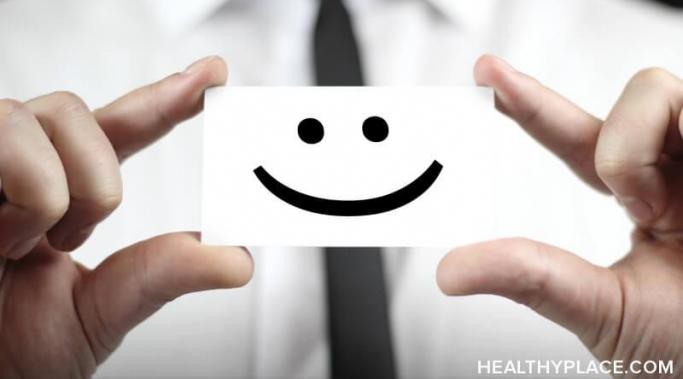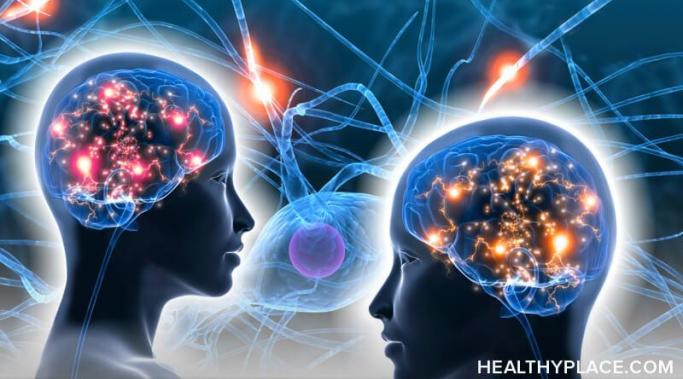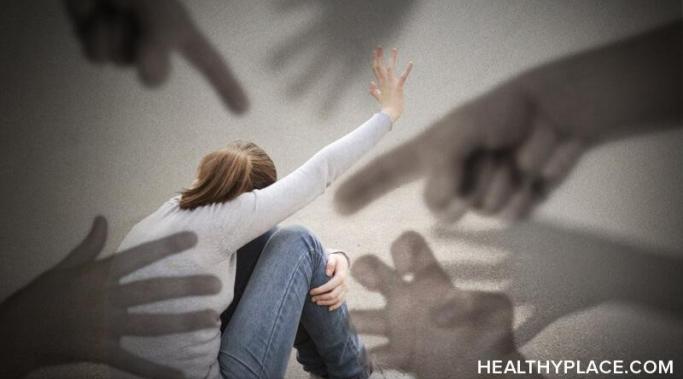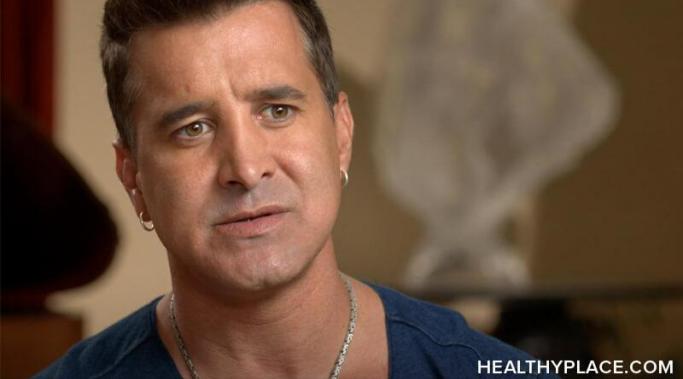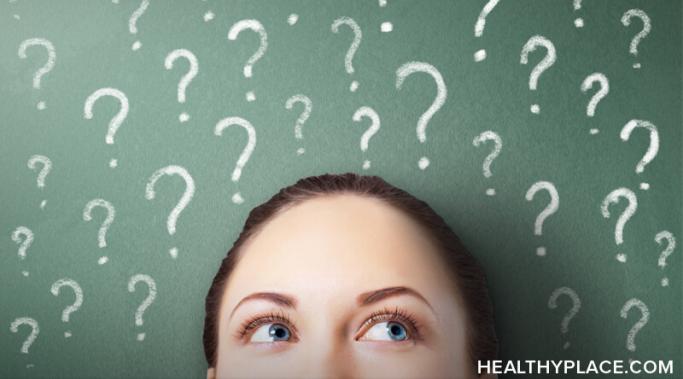Once a person has experience with a person with bipolar disorder, they may assume that they will always have a similar experience with others who have bipolar disorder. In other words, a person may paint everyone with bipolar disorder with the same brush. If the first person with bipolar disorder they have experience with is very intelligent or creative — they may think all people with bipolar are. On the other hand, if their experience with a person with bipolar disorder was very negative, they may assume that all their future experiences will go the same way. Generalizations of any group don't help us, however.
How Others See Bipolar
I often hide depression with a smile, even when I'm actually extremely depressed. This is a characteristic of "high-functioning" bipolar or depression. In other words, I'm carrying on with life and maybe even look okay, but really, I am drying inside. I've had practice looking mentally well when being really sick for years. I'm awfully good at it. But while this allows me to move through the world more successfully than some, there are also problems when you hide depression despite being very ill.
I hate pop psychology a lot. And I hate pop psychology a lot for a very good reason: it harms those with mental illness (among others). Pop psychology aims to answer the mind's and the brain's questions with simplistic, easily digestible answers. Unfortunately, the brain and mind don't actually work like that. The body and the psyche require more than what pop psychology has to offer. So, yes, I hate pop psychology.
Dating with an invisible illness has its pitfalls. When do you tell someone about your illness? When do you explain the impacts your illness has on your life? How do you try to make an invisible illness visible to the person you're dating? My own forays into the dating pool have been making me think about just these questions.
The word "neurodivergent" is flung around social media and is now very politically correct. For example, it's supposedly okay to call a person "neurodivergent," whereas calling them "mentally ill" will get you social media-canceled. But if people insist on using the term neurodivergent, then let's at least know what it means and how to use it properly.
"He's totally psychotic." "My breakup was totally psycho." How many times have you heard those types of phrases? I've heard it many, many times. While it's pretty common these days to have some knowledge about mental illness terms, psycho, psychotic, and even psychosis tend not to be understood. Let's delve into the meanings of psycho, psychotic, and psychosis, both from a common vernacular point of view and from an accuracy point of view.
Do people with bipolar disorder have good sex lives? Do people with bipolar disorder have sex lives at all? And what effect does mood have on one's sex life? These are just some of the questions that people ask about the sex lives of people with bipolar disorder. Let's explore some of the answers.
People feel the need to "correct" mental health language constantly. This is mainly a product of political correctness and virtue signaling -- both of which I detest. In fact, talking about mental health and mental illness is like talking through a minefield. Wrong mental illness name -- boom -- you've exploded. Wrong sentence structure -- boom -- you've exploded again. And the thing is, running around correcting mental health language simply shuts down conversation altogether, and it's that exactly the opposite of what mental illness needs? Mental illness needs more open acknowledgment, not people shedding in the dark scared of being publically shamed for incorrectly using words.
When you have bipolar disorder, advocating for your health is even harder. And honestly, doctors are often to blame for this difficulty. Not all doctors are the same, of course, but many treat people with serious mental illness in ways different from other patients. Learn why it's so hard to advocate for your health with bipolar disorder and what you can do about it.
If you have bipolar disorder, there's a good chance you've wondered, "Is it my fault I have bipolar disorder?" In my experience, most of us wonder this at some point, usually early after diagnosis -- I know I certainly did. There are multiple reasons this seems to come up for people. If you're wondering if your bipolar disorder is your fault, read on.

